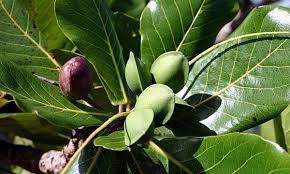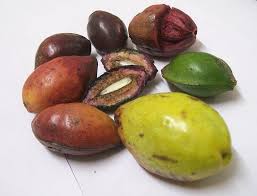![]()
If you’ve landed on this article page, you’re probably searching for a
good business idea—an idea that’s light on the pocket but heavy on
returns, promising both a fulfilling journey and potential profit.
|
How
To Start A Lucrative Almond Farming Business In Nigeria
Almond farming business is a profitable venture that has gained
much popularity in Nigeria and Africa in recent years. Almonds
are highly nutritious and are a good source of protein, fiber,
healthy fats, vitamins, and minerals. The almond market in
Africa and Nigeria is growing rapidly, and this presents a great
opportunity for farmers and investors to tap into the market.
If you want to start your own almond farm, you should pick an
ideal location where the weather is good for growing almond
trees. The soil should be well-drained and rich in nutrients to
ensure maximum growth.
The yield per hectare for Almond farming in Nigeria and Africa
ranges from 800kg to 1500kg, depending on the variety and the
location. The growth cycle of Almond trees lasts between five to
seven years, and it is essential to provide adequate irrigation,
soil fertility, and pest control measures to ensure maximum
yield.
Almond farming is a high-value cash crop that requires a
significant investment in terms of land, irrigation systems, and
equipment. However, the long-term profits of Almond farming
outweigh the initial capital outlay, as the global demand for
Almonds continues to rise.
Almond tree planting spacing
These trees prefer to grow 15–20 feet (4.6–6 meters) away from
one another. Though row-to-row spacings of 20 to 22 feet (6 to
6.7 meters) and tree-to-tree spacings of 12 to 14 feet (3.7 to
4.3 meters) are currently the norm in commercial cultivation,
which indicates a shift toward higher almond planting density.
You can start this business commercially after learning form
existing farmers. Here we are trying to describe more about the
steps of starting and operating a successful almond farming
business from planting, caring to harvesting and marketing.
Site Selection
Almond plants generally grow in a wide range of soils, with pH
range of soil varies from 7.0 to 8.5. But loamy, deep and well
drained soils are best suitable for commercial almond farming.
Almond trees can’t
thrive well in heavy or poorly drained soils but can be grown in
average soils supplemented with Farm Yard Manure and with
regular assured irrigation.
Preparing the land perfectly is very important for commercial
almond farming business. So, you have to prepare the land
perfectly by 2-3 ploughing. And add as much organic fertilizers
as you can while preparing the land.
Climate Requirement
Almond plants require climate having slightly hot summer
temperature ranging from 30° C to 35° C, and cool winters for
plants growth and kernel filling. (unopened blossoms shall
withstand cold up to -2.2° C, but blossoms at petal fall stage
are damaged at 0.50° C to -1.1° C.)
The blossoms can withstand temperature from -2.2° C to -3.3° C
for a short time but if low temperature continuous for long
hours they get damaged easily.
Varieties/Cultivars
There are many varieties of almonds available to choose from.
Common varieties include Nonpareil, Tuono and Mariana. And there
are many commercial varieties available for higher production.
Planting
The grafted or budded almond plants should be planted in a
square system at a distance of either 3.5 meters X 3.5 meters
(under high density planting system), 4 meter X 4 meters (medium
high density system) and 6 meters X 6 meters (normal planting
system).
Try to plant the almond plats from February to March if the
center of the pit, provided by the desired bamboo supports to
protect the almond trees from winds and to grow straight.
Caring
Almond plants
generally grow well and require less caring and other
management. Although, taking some additional care will help the
plants to grow well and produce more. Here we are trying to
describe more about the caring process of almond plants.
Fertilizing: The almond trees are heavy feeder and they require
a good amount of organic and chemical fertilizers. Apply as much
organic fertilizers (Farm Yard Manure) as you can in each tree
during winter.
Fertilizers doses should be applied on the basis of leaf
nutrient analysis and soil test. Nitrogen/Urea should be applied
in 2-3 split doses, and the first half dose should be applied
along with DAP (full) and MOP (full) at fortnight before
expected to bloom.
A second dose (1/4th) of Urea should be applied in May-June.
Foliar spray of Urea about 1.5 to 2 percent may be given for
promoting fruiting bud formation and subsequent growth in the
next season.
Watering/Irrigation: Adequate irrigation/watering is a must for
the almond plants. The critical stages of an almond plantation
which are most sensitive to water shortages are flowing and
fruit development.
However, adequate watering must be provided during these stage
for getting a higher yield of quality almond nuts. The drip
irrigation watering method found very efficient in almond
farming. So, try to adopt drip irrigation for better water
management.
Mulching: Mulching is very helpful for retaining moisture into
the soil. It is also helpful to prevent weeds from your field.
You can use organic materials for using as mulch.
Intercropping of Almonds: During the almond orchard pre-bearing
stage, inter-cultivation with several suitable crops are
recommended for some extra income through sustainable
utilization of interspaces.
The best intercrops in almond farming are saffron, pea, pulses,
carrot, mustard, onion, garlic and medicinal plants like
lavendine, lavender etc.
Pollination: Generally, the almond
trees are not self-pollinating. So it is necessary to
provide every 3rd row in each farm with pollinizer variety so
that their bloom should coincide with each other.
Pests, Diseases, Disorders: Pests, diseases and disorders are
relatively less in almond production business. Consult with an
expert in your area if you notice any.
Harvesting: The nuts are normally harvested by manual plucking
in more than 50% split stage. It begins to split open at the end
of July and between mid to late August the splits widen which
exposes the shell and this allows the nuts to dry. Make sure
it’s dry for harvesting, rain may damage nuts quality.
Harvesting is generally done knocking the branches with sticks
or manually but care to be taken to save the fruiting wood and
branches while knocking the branches with sticks. Later on, the
almond hull is removed manually.
Post-Harvesting: The fruits require hulling just after
harvesting almonds, otherwise they will be damaged by fungal
infection very quickly. Then the nuts are sun-dried or dried by
forced hot air until their moisture content reaches 5 to 7
percent. Polytunnels with a fan can also be used for best
drying, and the almond nuts are then de-hulled and shelled.
Yield: It’s very hard to tell the exact amount. But on average,
you can expect an average yield of up to 1 to 2 tonnes per
hectare.
Marketing: Marketing almonds is very easy and simple. You will
be able to easily sell your products in the market. Demand and
value of almonds both are high in the market.
These are the common steps and ways for starting and operating a
successful almond farming business. Hope this guide has helped
you! Good luck & may God bless you!
Get our Practical Guide on how to start an Almond
Farming in Nigeria. Almond
farming in Nigeria has become an increasingly lucrative
venture, offering farmers the opportunity to tap into both local
and export markets. This comprehensive guide will walk you
through the step-by-step process of starting and maintaining a
profitable Almond farm in Nigeria, covering everything from
initial planning to harvesting and marketing your produce.
|







